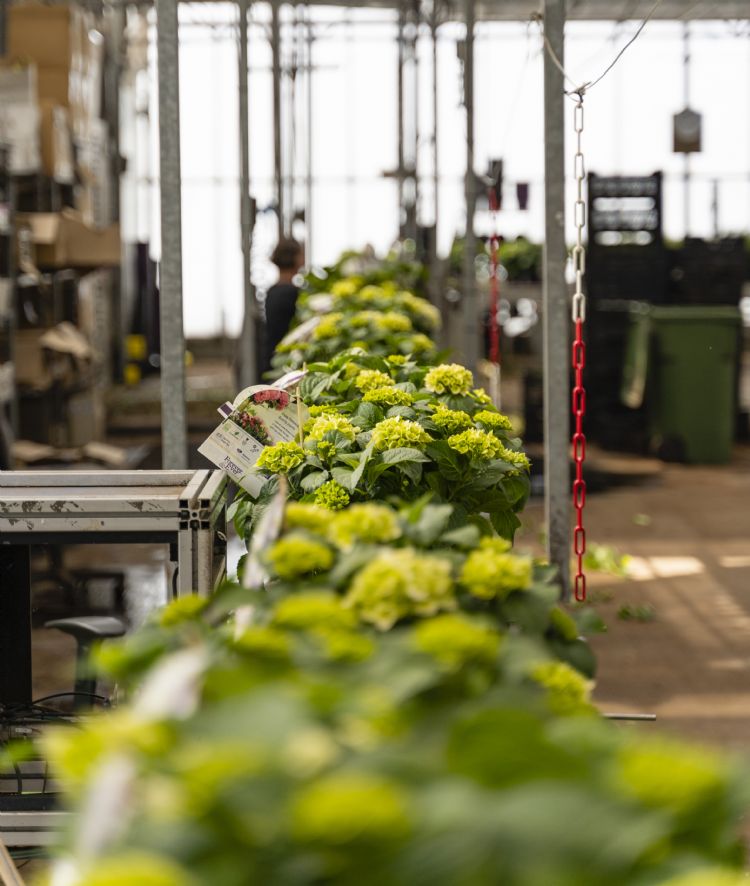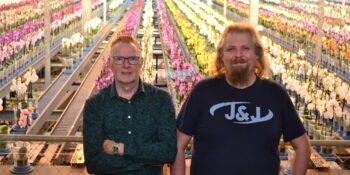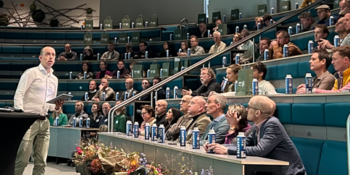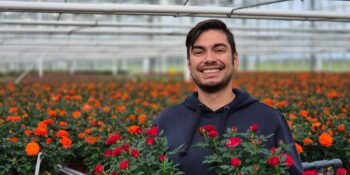Kwekerij Jonkers Elshout, primarily known for its Forever & Ever hydrangea and Euonymus japonica, started to alter its operating process twelve years ago. Rob Jonkers, owner: ‘We aim to produce a sustainable product, what we simply call a resilient plant.’
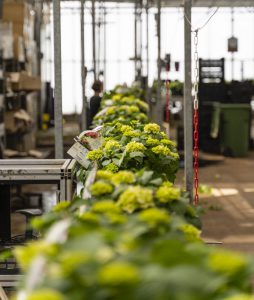
Foto: Jonkers Elshout.
The company started environmental record-keeping and certification back in 1998 by participating in MPS-ABC. MPS was the obvious choice as the company already had to keep records for the Product Board for Horticulture. It enabled the nursery to achieve two things at once: the record-keeping for the Product Board for Horticulture was submitted automatically via MPS and on top of that Jonkers gained insight into its own consumption and was able to identify areas for further improvement. ‘Although setting up the record-keeping involved a great deal of work at the time, I’m glad we did it back then. The insight into our own processes was and continues to be highly valuable,’ Jonkers explains.
Different cultivation method
A few years later, in 2013, customers started requesting MPS-GAP and MPS-SQ certification. Earning this certification prompted the nursery to view cultivation in a different light. ‘We already sought ways of using as few crop protection agents and fertilisers as possible. From that date, though, we started to view cultivation in a totally different way and work towards the method we now use,’ Jonkers says.
We tackle the cause, not the effect
Now the company grows resilient garden plants in pots and uses few chemicals for pest control. Twelve years ago they started to alter their cultivation method: by tackling the cause instead of using pest control on the effect. ‘Our plants used to be too delicate, making them vulnerable to disease and pests. That’s why we started to make plants more resilient so that lice, for instance, don’t feel at home on them.’
Transparency with respect for nature
Jonkers Elshout has participated in MPS-ProductProof since 2016 as well. ‘MPS-ProductProof enables us to be transparent, which we believe to be extremely important. We have nothing to hide, so everything here can be done completely openly. This enables us to reap the maximum benefits,’ Jonkers observes.
Our aim isn’t to change the world for the better, but if things can be done differently with respect for nature there’s no excuse not to do it.
He continues: ‘Our aim isn’t to change the world for the better, but if things can be done differently with respect for nature there’s no excuse not to do it. Our employees prefer to work among the plants without having to wear a face mask, and no-one knows the long-term effects of chemicals. So where we can do things differently while preserving Mother Earth, we will certainly do so.’
MPS-GAP, MPS-SQ and MPS-ProductProof
Growers with MPS-GAP certification meet the criteria for e.g. traceability, environment, crop protection agents and recall procedures. This means they can supply international retailers. The MPS-Socially Qualified (SQ) certificate proves that as a grower your company meets national and international standards on health and safety. MPS-ProductProof demonstrates that individual products do not contain certain active ingredients or that these were not used during cultivation.
This article has been published in Dutch on the website of Boom-in-Business: https://www.boom-in-business.nl/article/36685/door-weerbare-planten-te-kweken-gebruikt-jonkers-elshout-nog-nauwelijks-chemie
